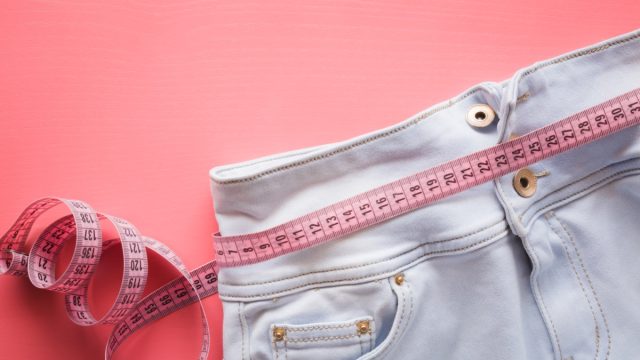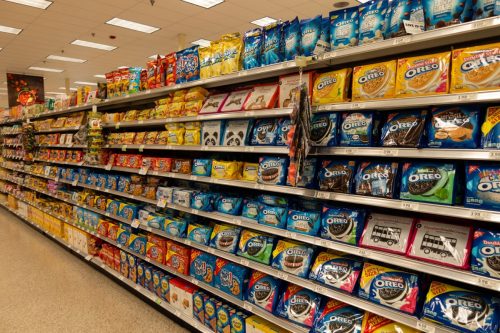3 Things That Make Weight Gain Almost Inevitable (Besides Overeating)

I eat too much and don’t exercise enough. It’s a common refrain, typically spoken while looking between your bare feet at the numbers on a scale, and it reinforces the ingrained belief that we could lose weight if only we burn off more calories than we consume.
That notion, however, ignores three causes of weight gain that have little to do with that second helping of spaghetti you had at Nana’s on a lazy Sunday afternoon.
Scientists say the old, “eat less, move more” idea oversimplifies the solution to obesity, which is a complex problem. They point to the rising rates of obesity, which now affects 40 percent of the U.S. population as proof that this theory is outdated and misleading.
“Conceptualizing obesity as a disorder of energy balance restates a principle of physics without considering the biological mechanisms that promote weight gain,” the authors of a perspective in a 2021 edition of The American Journal of Clinical Nutrition wrote. In other words, putting on weight is not about how much food you’re eating but what you’re eating, when you’re eating it, and how it affects you metabolically as you get older.
Obesity is multifactorial, involving genetics, lifestyle, food choice and environment. Read on for three things you’re doing that are likely causing the numbers on your scale to edge up.
READ THIS NEXT: Snacking on This Helps You Lose Weight and Sleep Better, New Study Says.
1
You’re eating processed foods.

The standard American diet (or SAD, for short) is loaded with processed, rapidly digested carbohydrates that are as addictive as they are delicious. Think potato chips, cookies, doughnuts, frozen pizza, hot dogs, fast-food hamburgers, fried chicken, and ice cream. Soda and other sugar-sweetened beverages lead the list of quickly absorbed sugar bombs: An American Journal of Clinical Nutrition study found that women gained an average of 17 pounds over four years when they drank sugary beverages.
“These foods stimulate the release of the stress hormone cortisol and appetite hormones such as insulin, dopamine, and ghrelin, all of which play a role in cravings,” says registered dietitian and nutritionist Blanca Garcia, RDN, a nutrition specialist for Health Canal. She explains that eating highly processed carbohydrates prompts the body to secret insulin, which signals fat cells to store calories.
“Insulin inhibits the production of human growth hormone, which is responsible for optimal muscle mass, and triggers a rise in the stress hormone cortisol that increases visceral body fat,” endocrinologist Florence Comite, MD, founder of the Comite Centers for Precision Medicine & Health, tells Best Life. “By fixing a patient’s metabolism, they start to build muscle again and reduce the storage of fat. That’s how we can stop diabetes in its tracks, stop heart disease, and reverse aging.”
2
You’re not sleeping enough.

Numerous studies have shown that people who sleep less tend to consume more calories and high calorie processed carbohydrates. One of the most recent, published in 2022 in JAMA Internal Medicine, tracked 80 overweight people for four weeks. For the first two weeks, they followed their normal sleep routine, getting less than 6.5 hours of sleep per night. During the second two weeks, the group of 80 was split into two. One group continued to follow their normal sleep patterns, while the people in the test group were counseled on improving their sleep hygiene with the goal of increasing their sleep duration to 8.5 hours. The group that improved their sleep habits slept for more than an hour longer each night than the group that didn’t receive counseling. Researchers found that the people who extended their sleep consumed an average of 270 fewer calories each day. They also lost roughly a pound during the final two weeks, while the control group gained weight.
“People focus on diet and exercise and don’t realize how much more important sleep is to weight management,” says Comite, who explains that what you may eat before bedtime can influences how well or poorly you sleep.
Comite suggests stopping eating at least two hours before your bedtime. If you must have something, she says, choose a light protein snack with a bit of carbohydrate. Avoid a high-carb snack, which will drive the release of insulin, and suppress growth hormone and melatonin, the hormone that regulates sleep cycles, says Comite. Over time, research suggests, a disrupted circadian rhythm can lead to the onset of metabolic disease.
For more health news sent directly to your inbox, sign up for our daily newsletter.
3
You’re getting older.

Getting older virtually guarantees weight gain, unless you’ve been blessed with genes that keep you lean. But even if you aren’t genetically immune to weight gain, there’s something you can do to buck the trend that comes with age: Build up your muscles.
“After about age 30, your levels of the hormone testosterone begin to drop and you begin to lose muscle, a process called sarcopenia,” Comite explains. Muscle burns calories, even at rest, so if you have less muscle and don’t reduce your calorie intake, you’ll likely put on weight. The remedy for this age-related muscle loss/fat gain is regular strength training, she says. She also recommends eating more protein, the building block of muscle, and says we should shoot for 1.6 grams per kilograms of your body weight per day if you’re working out with weights.
Visit your doctor if you’re having trouble losing weight.

As with any medical advice you read online, it’s best to check in with your healthcare provider to find out what’s best for you. If you’re sleeping eight hours a night, avoiding processed foods and sugary beverages, working out with weights, and the scale is stubbornly creeping up, make an appointment.
“Ask your doctor to prescribe a blood test to check your free testosterone, which is essential for muscle growth, as well as metabolic health markers like fasting glucose, insulin, and thyroid balance,” Comite recommends.